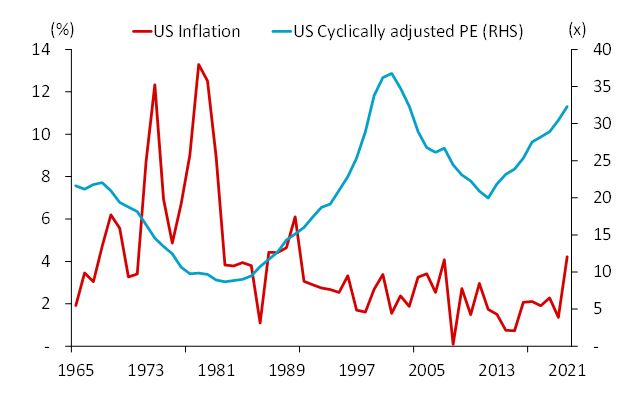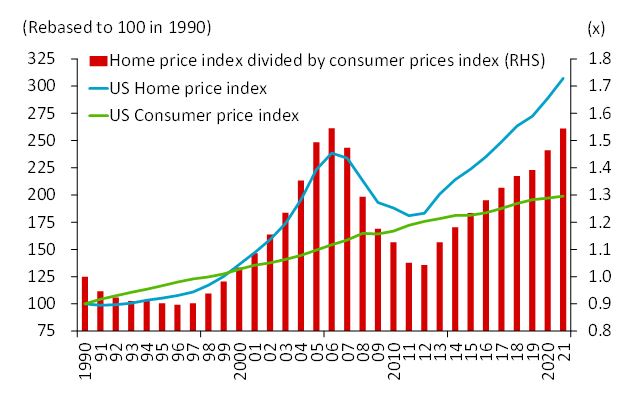Inflation Uptick Could Make the US Stock Market Go a Bit Further
One of the biggest challenges an investor faces right now is what to do with the US stock market. It is expensive, but the US Government and the Fed seem willing to do anything to keep the market from crashing. My conclusion at this point is that I will ride the US market up a bit further.
What has previously happened to the US stock market when US inflation has risen over the prior 3-month period? We did some research to put this question to the test.
Over the three months after a short-term rise in inflation, the answer we found was the US market rose by 6%. Over the subsequent 6 months, it rose by 9%, and over the following 12 months, it rose by 16%.
One conclusion from this could be that surges in inflation have been generally good for the US stock market. A problem with this conclusion is that I did this study only back to 1990, a time when the US stock market has mainly been on an uptrend. So maybe it has nothing to do with rising inflation! But based on these findings, I am willing to consider that in the short-term, given the recent inflation uptick, the US stock market could stretch even further above its fundamental valuation.

Once again, the US government is creating a housing bubble
In the chart below, I rebased home prices and consumer prices to 100 from 1990. The lines show that prior to the 2008 crisis, US housing prices were pushed up much higher than consumer prices. How much higher? Well, the bar chart shows 1.5x higher before it all crashed, and that ratio went back to 1. Since that bottom, housing prices have once again risen considerably higher than consumer prices. Using the recent numbers, it is back to its prior 2006 peak of 1.5x. The only thing possibly slowing it down is rising home mortgage rates. But the pace of that is slow enough, meaning that the 2021 housing bubble could be actually higher than 2008.

DISCLAIMER: This content is for information purposes only. It is not intended to be investment advice. Readers should not consider statements made by the author(s) as formal recommendations and should consult their financial advisor before making any investment decisions. While the information provided is believed to be accurate, it may include errors or inaccuracies. The author(s) cannot be held liable for any actions taken as a result of reading this article.
